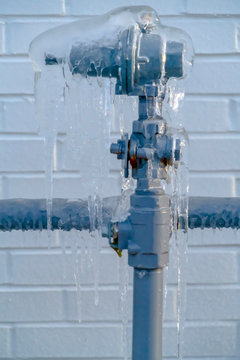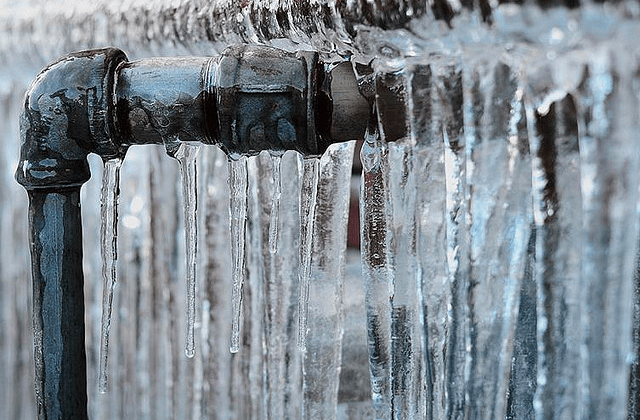Are you currently trying to find details involving How to prepare your home plumbing for winter weather?

Cold weather can wreak havoc on your pipes, specifically by freezing pipelines. Right here's how to stop it from occurring and what to do if it does.
Introduction
As temperature levels decline, the threat of frozen pipelines increases, potentially bring about pricey fixings and water damage. Recognizing how to prevent frozen pipelines is vital for homeowners in cool climates.
Comprehending Frozen Pipelines
What causes pipelines to freeze?
Pipes ice up when exposed to temperatures listed below 32 ° F (0 ° C) for prolonged durations. As water inside the pipelines freezes, it increases, taxing the pipeline wall surfaces and potentially creating them to break.
Dangers and problems
Frozen pipelines can cause supply of water disturbances, property damage, and pricey repair work. Ruptured pipelines can flood homes and trigger considerable structural damage.
Indications of Frozen Piping
Identifying frozen pipes early can avoid them from rupturing.
Exactly how to recognize icy pipelines
Seek lowered water circulation from taps, uncommon smells or noises from pipes, and visible frost on revealed pipelines.
Prevention Tips
Protecting vulnerable pipes
Wrap pipelines in insulation sleeves or use warm tape to protect them from freezing temperature levels. Concentrate on pipes in unheated or outside locations of the home.
Home heating strategies
Maintain interior spaces properly warmed, especially locations with plumbing. Open up closet doors to permit warm air to circulate around pipelines under sinks.
Shielding Exterior Plumbing
Yard hoses and outside taps
Disconnect and drain pipes yard hose pipes prior to winter. Set up frost-proof faucets or cover exterior taps with insulated caps.
What to Do If Your Pipes Freeze
Immediate actions to take
If you presume icy pipelines, maintain taps open to eliminate stress as the ice thaws. Make use of a hairdryer or towels taken in warm water to thaw pipelines gradually.
Long-Term Solutions
Architectural changes
Take into consideration rerouting pipelines away from exterior walls or unheated areas. Add added insulation to attics, basements, and crawl spaces.
Updating insulation
Invest in high-grade insulation for pipes, attics, and walls. Appropriate insulation assists maintain consistent temperature levels and lowers the risk of frozen pipes.
Verdict
Preventing frozen pipes requires aggressive measures and quick reactions. By comprehending the causes, indicators, and safety nets, homeowners can shield their plumbing throughout cold weather.
Helpful Tips to Prevent Frozen Pipes this Winter
UNDERSTANDING THE BASICS: WHY PIPES FREEZE AND WHY IT’S A PROBLEM
Water freezing inside pipes is common during the winter months, but understanding why pipes freeze, and the potential problems it can cause is crucial in preventing such incidents. This section will delve into the basics of why pipes freeze and the associated problems that may arise.
THE SCIENCE BEHIND FROZEN PIPES
When water reaches freezing temperatures, it undergoes a physical transformation and solidifies into ice. This expansion of water as it freezes is the primary reason pipes can burst. As the water inside the pipe freezes, it expands, creating immense pressure on the walls. If the pressure becomes too great, the pipe can crack or rupture, leading to leaks and water damage.
FACTORS THAT CONTRIBUTE TO PIPE FREEZING
Low Temperatures: Extremely cold weather, especially below freezing, increases the risk of pipes freezing. Uninsulated or Poorly Insulated Pipes: Pipes located in unheated areas, such as basements, crawl spaces, or attics, are more prone to freezing. Insufficient insulation or lack of insulation altogether exacerbates the problem. Exterior Wall Exposure: Pipes running along exterior walls are susceptible to freezing as they encounter colder temperatures outside. Lack of Heating or Temperature Regulation: Inadequate heating or inconsistent temperature control in your home can contribute to frozen pipes. PROBLEMS CAUSED BY FROZEN PIPES
- Pipe Bursting: As mentioned earlier, the expansion of water as it freezes can cause pipes to burst, resulting in significant water damage.
- Water Damage: When pipes burst, it can lead to flooding and water damage to your property, including walls, ceilings, flooring, and personal belongings.
- Structural Damage: Prolonged exposure to water from burst pipes can compromise the structural integrity of your home, leading to costly repairs.
- Mold and Mildew Growth: Excess moisture from water damage can create a favorable environment for mold and mildew growth, posing health risks to occupants.
- Disrupted Water Supply: Frozen pipes can also result in a complete or partial loss of water supply until the issue is resolved.
WHY CERTAIN PIPES ARE MORE PRONE TO FREEZING
- Location: Pipes located in unheated or poorly insulated areas, such as basements, crawl spaces, attics, or exterior walls, are at higher risk of freezing.
- Exterior Pipes: Outdoor pipes, such as those used for irrigation or exposed plumbing, are particularly vulnerable to freezing as they are directly exposed to the elements.
- Supply Lines: Pipes that carry water from the main water supply into your home, including the main water line, are critical to protect as freezing in these lines can affect your entire plumbing system.
- Underground Pipes: Pipes buried underground, such as those connected to sprinkler systems or outdoor faucets, can be susceptible to freezing if not properly insulated.
https://busybusy.com/blog/helpful-tips-to-prevent-frozen-pipes-this-winter/

We had been made aware of that write-up on Preventing and dealing with frozen pipes from an associate on another web page. Sharing is good. You never know, you may be helping someone out. Thanks a bunch for being here. Come back soon.
Visit Homepage